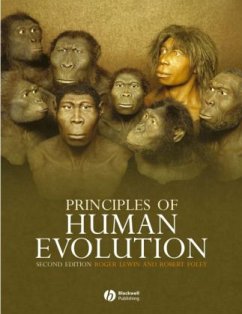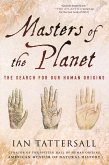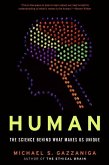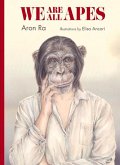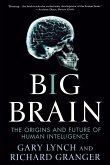Principles of Human Evolution presents an in-depth introduction to paleoanthropology and the study of human evolution. Focusing on the fundamentals of evolutionary theory and molecular genetics approaches to important questions in the field, this timely textbook will help students gain a perspective on human evolution in the context of modern biological thinking.The second edition of this successful text features the addition of Robert Foley, a leading researcher in Human Evolutionary Studies, to the writing team. Strong emphasis on evolutionary theory, ecology, and behavior and scores of new examples reflect the latest evolutionary theories and recent archaeological finds. More than a simple update, the new edition is organized by issue rather than chronology, integrating behavior, adaptation, and anatomy. A new design and new figure references make this edition more accessible for students and instructors.
Table of contents:
Prologue For Students: A Guide To Studying Human Evolution.
Part I: The Framework Of Human Evolution:
1. The Growth Of The Evolutionary Perspective:
Mans Place In Nature.
Establishing The Link Between Humans And Apes: Historical Views.
Human Evolution As Narrative And Explanation.
2. The Principles Of Evolutionary Theory:
The Fundamentals Of Evolutionary Theory.
Modern Evolutionary Theory: The Development Of Neo-Darwinism And The Power Of Natural Selection.
3. Pattern And Process In Evolution:
From Micro To Macro Evolution: Debates In Modern Evolutionary Theory.
The Physical Context Of Evolution.
Extinction And Patterns Of Evolution.
4. The Geological Context:
Dating Methods.
Science Of Burial.
5. The Systematic Context:
Systematics.
Molecular Systematics.
6. Human Evolution In Comparative Perspective:
Primate Heritage.
The Comparative Perspective.
Bodies, Size, And Shape.
Bodies, Brains, And Energy.
7. Reconstructing Behavior:
Bodies, Behavior, And Social Structure.
Nonhuman Models Of Early Hominin Behavior.
Part II: Early Hominin Evolution:
8. Apes, Hominins, And Humans: Morphology, Molecules, And Fossils:
Morphology And Molecules: A History Of Conflict.
Evolution Of The Catarrhines The Context Of Hominin Origin.
9. Searching For The First Hominins:
The Earliest Hominins.
Bipedalism.
10. The Ape-Like Hominins:
The Australopithecines.
11. Origins Of Homo:
The Genus Homo.
Hominin Relationships.
12. Behavior And Evolution Of Early Hominins:
Early Tool Technologies.
The Pattern Of Early Hominin Evolution.
13. Africa And Beyond - The Evolution Of Homo:
Evolutionary Patterns.
New Technologies.
Hunter Or Scavenger.
Part III: Later Hominin Evolution:
14. The Origin Of Modern Humans: Background And Fossil Evidence:
Background For The Evolution Of Modern Humans.
Competing Hypotheses For Modern Human Origins.
Chronological Evidence.
The Question Of Regional Continuity.
15. The Origin Of Modern Humans: Genetic Evidence:
The Impact Of Molecular Evolutionary Genetics.
Recent Developments.
16. The Origin Of Modern Humans: Archeology, Behavior, And Evolutionary Process:
Archeological Evidence.
Regional Patterns In The Archeology.
Towards An Integrated Model Of Modern Human Origins.
17. Evolution Of The Brain, Intelligence, And Culture:
Encephalization.
Cultural Evolution.
18. Language And Symbolism:
The Evolution Of Language.
Art In Prehistory.
19. New Worlds, Old Worlds:
Completing Colonization.
The First Villagers.
The Human Evolutionary Heritage.
References.
Table of contents:
Prologue For Students: A Guide To Studying Human Evolution.
Part I: The Framework Of Human Evolution:
1. The Growth Of The Evolutionary Perspective:
Mans Place In Nature.
Establishing The Link Between Humans And Apes: Historical Views.
Human Evolution As Narrative And Explanation.
2. The Principles Of Evolutionary Theory:
The Fundamentals Of Evolutionary Theory.
Modern Evolutionary Theory: The Development Of Neo-Darwinism And The Power Of Natural Selection.
3. Pattern And Process In Evolution:
From Micro To Macro Evolution: Debates In Modern Evolutionary Theory.
The Physical Context Of Evolution.
Extinction And Patterns Of Evolution.
4. The Geological Context:
Dating Methods.
Science Of Burial.
5. The Systematic Context:
Systematics.
Molecular Systematics.
6. Human Evolution In Comparative Perspective:
Primate Heritage.
The Comparative Perspective.
Bodies, Size, And Shape.
Bodies, Brains, And Energy.
7. Reconstructing Behavior:
Bodies, Behavior, And Social Structure.
Nonhuman Models Of Early Hominin Behavior.
Part II: Early Hominin Evolution:
8. Apes, Hominins, And Humans: Morphology, Molecules, And Fossils:
Morphology And Molecules: A History Of Conflict.
Evolution Of The Catarrhines The Context Of Hominin Origin.
9. Searching For The First Hominins:
The Earliest Hominins.
Bipedalism.
10. The Ape-Like Hominins:
The Australopithecines.
11. Origins Of Homo:
The Genus Homo.
Hominin Relationships.
12. Behavior And Evolution Of Early Hominins:
Early Tool Technologies.
The Pattern Of Early Hominin Evolution.
13. Africa And Beyond - The Evolution Of Homo:
Evolutionary Patterns.
New Technologies.
Hunter Or Scavenger.
Part III: Later Hominin Evolution:
14. The Origin Of Modern Humans: Background And Fossil Evidence:
Background For The Evolution Of Modern Humans.
Competing Hypotheses For Modern Human Origins.
Chronological Evidence.
The Question Of Regional Continuity.
15. The Origin Of Modern Humans: Genetic Evidence:
The Impact Of Molecular Evolutionary Genetics.
Recent Developments.
16. The Origin Of Modern Humans: Archeology, Behavior, And Evolutionary Process:
Archeological Evidence.
Regional Patterns In The Archeology.
Towards An Integrated Model Of Modern Human Origins.
17. Evolution Of The Brain, Intelligence, And Culture:
Encephalization.
Cultural Evolution.
18. Language And Symbolism:
The Evolution Of Language.
Art In Prehistory.
19. New Worlds, Old Worlds:
Completing Colonization.
The First Villagers.
The Human Evolutionary Heritage.
References.
Review from Times Higher Education Supplement, February2004
-Alan Bilsborough, University of Durham
Human evolutionary studies now encompasses such wide-rangingsubject matter that accounts confined to simple narrations of thefossil record no longer suffice, while the pace of discoverycreates a continuing demand for clear, balanced introductions tothe subject. This book's authors - an expert science communicatorand a researcher who has had a major influence in broadeningtheoretical perspectives on human evolution - form a dream team toguide us through the subject's complexities.
This much-expanded second edition of an established text differsfrom its predecessor and virtually every other treatment in itsrange and its emphasis on principles, whether of evolutionarytheory, phylogenetics, behaviour, ecology or comparativeframeworks. Whereas most accounts condense such fundamentals intoan abbreviated introduction before homing in on the hominid fossilrecord, this book dedicates some 200 pages, or about 40 per cent ofthe text, to the subject. The approach is to view human evolutionas exemplifying general evolutionary forces and processes thatimpact on hominids as on other species, not to treat humanevolution as a one-off case for which issues of evolutionarydynamics, adaptation, ecology and so on have little, if any,relevance.
The book is impressively broad in scope, well organised andclearly written. Key issues are flagged up, with questionsalongside the text to serve as prompts. Alternative interpretationsare accurately summarised, with a balanced commentary andsufficient facts to indicate each argument's basics withoutoverloading detail. Each chapter ends with a "Beyond the facts" boxsummarising a current issue and its underlying concepts tostimulate further thought.
There are reasonable illustrations of important fossil specimensand excellent diagrams that greatly clarify issues of theory andinterpretation. An associated website promises furtherresources.
I would have welcomed rather more coverage of the fossilevidence; on the other hand, there is a very clear pr?cis ofgenetic data bearing on modern human origins, and an excellentaccount of cognitive and behavioural aspects of humanevolution.
The book is aimed at the US market but will find many takersthis side of the Atlantic among anthropology, archaeology andevolutionary biology students. Inevitably, some aspects willquickly be overtaken by new discoveries. The website, if developed,will help here, but minor obsolescences matter little compared withthe book's great strength, which is to provide readers with anaccessible, secure and comprehensive conceptual framework for humanevolution, within which they can make sense of newdevelopments.
Alan Bilsborough, University of Durham, Times HigherEducation Supplement, February 2004
-Alan Bilsborough, University of Durham
Human evolutionary studies now encompasses such wide-rangingsubject matter that accounts confined to simple narrations of thefossil record no longer suffice, while the pace of discoverycreates a continuing demand for clear, balanced introductions tothe subject. This book's authors - an expert science communicatorand a researcher who has had a major influence in broadeningtheoretical perspectives on human evolution - form a dream team toguide us through the subject's complexities.
This much-expanded second edition of an established text differsfrom its predecessor and virtually every other treatment in itsrange and its emphasis on principles, whether of evolutionarytheory, phylogenetics, behaviour, ecology or comparativeframeworks. Whereas most accounts condense such fundamentals intoan abbreviated introduction before homing in on the hominid fossilrecord, this book dedicates some 200 pages, or about 40 per cent ofthe text, to the subject. The approach is to view human evolutionas exemplifying general evolutionary forces and processes thatimpact on hominids as on other species, not to treat humanevolution as a one-off case for which issues of evolutionarydynamics, adaptation, ecology and so on have little, if any,relevance.
The book is impressively broad in scope, well organised andclearly written. Key issues are flagged up, with questionsalongside the text to serve as prompts. Alternative interpretationsare accurately summarised, with a balanced commentary andsufficient facts to indicate each argument's basics withoutoverloading detail. Each chapter ends with a "Beyond the facts" boxsummarising a current issue and its underlying concepts tostimulate further thought.
There are reasonable illustrations of important fossil specimensand excellent diagrams that greatly clarify issues of theory andinterpretation. An associated website promises furtherresources.
I would have welcomed rather more coverage of the fossilevidence; on the other hand, there is a very clear pr?cis ofgenetic data bearing on modern human origins, and an excellentaccount of cognitive and behavioural aspects of humanevolution.
The book is aimed at the US market but will find many takersthis side of the Atlantic among anthropology, archaeology andevolutionary biology students. Inevitably, some aspects willquickly be overtaken by new discoveries. The website, if developed,will help here, but minor obsolescences matter little compared withthe book's great strength, which is to provide readers with anaccessible, secure and comprehensive conceptual framework for humanevolution, within which they can make sense of newdevelopments.
Alan Bilsborough, University of Durham, Times HigherEducation Supplement, February 2004

